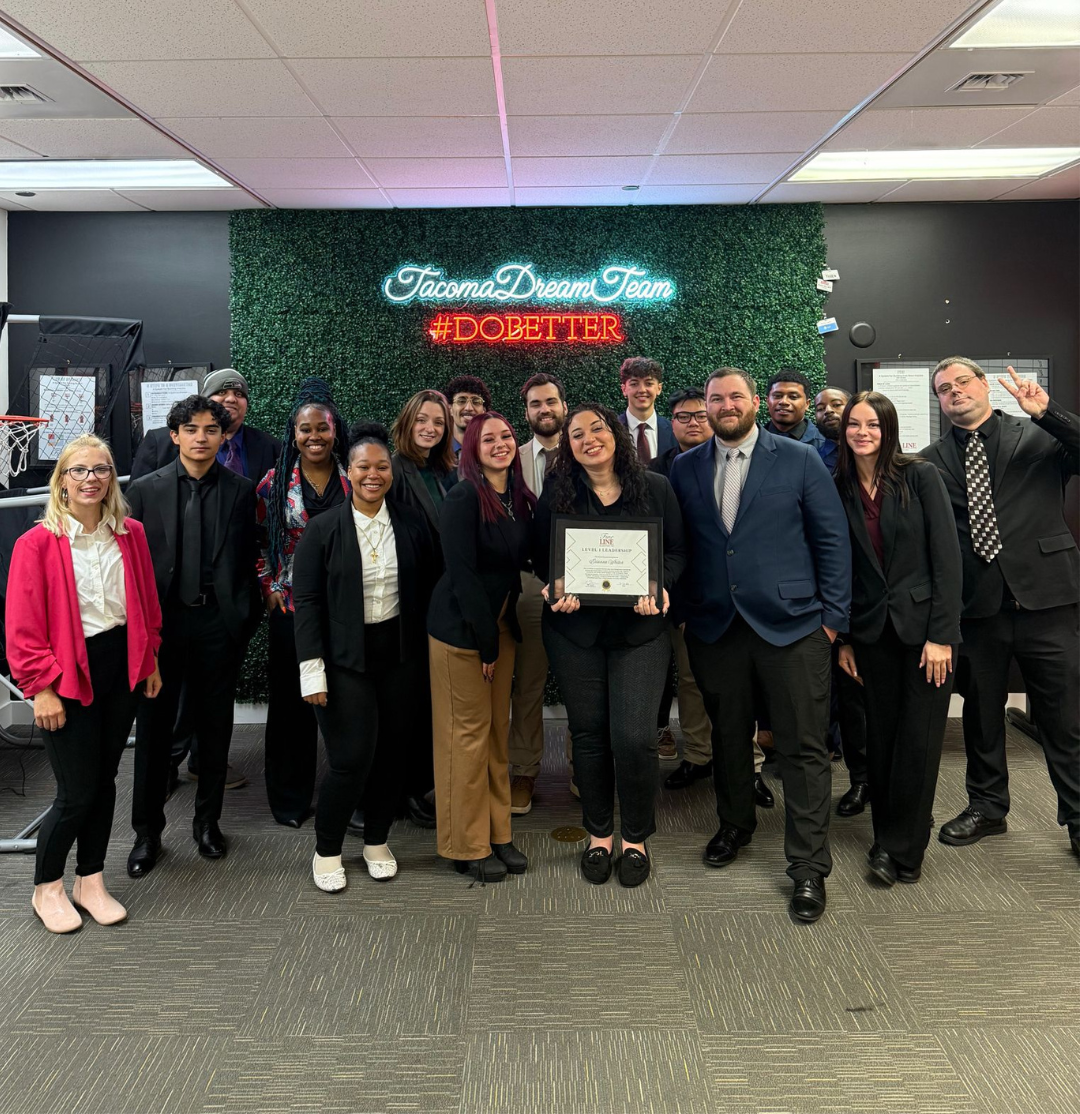Cultivating your ability to understand and manage feelings in your early career transforms how you connect with coworkers and tackle challenges. Emotional intelligence guides you in building genuine rapport, collaborating smoothly, and recovering from setbacks with resilience.
When you practice self-awareness and empathy from the start, you establish a foundation of influence and respect. As these skills deepen, you prepare yourself to step confidently into roles that demand both insight and adaptability.
The Role of Emotional Intelligence in Early Career Leadership
Emotional intelligence refers to how effectively you recognize, understand, and regulate emotions. Unlike IQ, which is mostly fixed, EI can be developed throughout your life, and the earlier you start, the better your foundation for leadership becomes.
Self-Awareness
- You tune in to your emotions without judgment, which helps you understand how your mood influences behavior and performance.
- Recognizing emotional triggers makes it easier to manage stress and avoid reactive decisions. This awareness lays the groundwork for self-improvement and credibility.
Self-Regulation
- Instead of reacting impulsively, you learn to pause, reflect, and respond with intention. This protects relationships and maintains professionalism in high-pressure moments.
- Self-regulation also involves staying composed and adaptable. Whether you’re facing feedback or a sudden shift in plans, your steady presence builds trust.
Motivation
- You set personal and professional goals that align with your values, fueling long-term drive. Intrinsic motivation helps you push through challenges with purpose.
- This quality also contributes to your energy and resilience. Highly motivated individuals are often seen as proactive and dependable, which are traits that leaders consistently exhibit.
Building Strong Workplace Relationships with EI
At the core of every successful workplace are strong, respectful relationships. Emotional intelligence enhances how you relate to colleagues, clients, and supervisors, transforming routine exchanges into meaningful interactions.
Empathy
- You show real interest in other people’s experiences and emotions. This helps you build rapport and avoid misunderstandings.
- Empathy makes collaboration smoother, especially when working across departments or cultural backgrounds. It allows you to see challenges through someone else’s lens.
Social Skills
- You engage in clear, respectful communication. Whether presenting ideas or giving feedback, you adjust your approach to suit the audience.
- Social awareness helps you pick up on body language, tone, and non-verbal cues which are key signals that many miss but emotionally intelligent individuals notice and respond to.
Conflict Resolution
- You defuse tension by listening first and avoiding blame. Emotional intelligence lets you separate the issue from the individual.
- During disagreements, you focus on common ground and potential solutions. This mindset promotes cooperation and helps maintain team morale.
Emotional Intelligence as a Driver for Personal and Professional Growth
Emotional intelligence contributes to a wide range of career success factors by influencing how you learn, adapt, and lead. It supports not just what you achieve but how you achieve it, and how others feel working alongside you.
Decision-Making
- You don’t rely solely on logic or gut instinct. Emotionally intelligent decision-making involves understanding how your emotions shape judgment and considering others’ perspectives.
- By slowing down and checking your assumptions, you make better choices, ones that reflect both your goals and the needs of those involved.
Influence and Persuasion
- You frame ideas around shared interests, making them more compelling. Emotionally intelligent professionals inspire action without needing to push.
- Your calm and consistent behavior earns credibility. Over time, people naturally turn to you for guidance because they trust your judgment.
Resilience
- You view failure as feedback, not defeat. Emotional intelligence gives you the mindset to recover, learn, and try again with renewed focus.
- When faced with uncertainty or setbacks, your optimism and problem-solving abilities help you persevere, which are essential traits for anyone on the path to leadership.
Key Emotional Intelligence Traits That Distinguish Leaders
Strong leaders aren’t just strategic, they’re emotionally aware. They create a stable, motivating environment where people feel heard and valued. By sharpening specific EI traits, you position yourself as someone who leads with clarity and care.
Adaptability
- You embrace change and treat it as an opportunity rather than a threat. Whether it’s a new tool, structure, or team dynamic, you adjust quickly and help others do the same.
- Being adaptable signals emotional maturity. It shows that you’re focused on outcomes, not just comfort zones.
Emotional Balance
- You know how to stay centered during emotional highs and lows. Leaders must be the calm in the storm, not contributors to chaos.
- Emotional balance builds your reputation as dependable. People follow those who remain thoughtful even when things get messy.
Positivity
- You maintain a solution-oriented mindset, especially when morale dips. Positivity doesn’t mean ignoring problems; it means believing that every challenge has a path forward.
- Encouraging words, recognition of others’ efforts, and a steady belief in team potential lift everyone’s energy and reflect strong leadership.
Practical Strategies to Develop and Strengthen Emotional Intelligence
Building EI is an ongoing process that thrives on practice, feedback, and intentional habits. These career growth tips will help you sharpen your emotional skills and accelerate your journey to leadership.
Seek Feedback
- Ask managers, teammates, and mentors for honest insights about how you come across. Don’t wait for performance reviews; be proactive.
- Listen without defensiveness, and thank people for their input. Then reflect on what changes could benefit your professional interactions.
Practice Mindfulness
- Set aside time each day, even 5 minutes, for reflection or deep breathing. This builds emotional regulation and helps you become more present.
- Notice when stress builds, and consciously shift focus. Mindful attention helps you avoid reacting on autopilot and encourages thoughtful responses.
Journal Emotional Patterns
- Write about workplace experiences that triggered strong emotions. What caused your reaction? What could you do differently next time?
- Over time, these entries will help you identify themes, see growth, and increase awareness of how you handle challenges.
Observe Role Models
- Watch how respected leaders manage pressure, give feedback, or navigate disagreement. What emotional cues do they send?
- Pay attention to tone, timing, and empathy. These “soft skills” are often invisible but have powerful effects on morale and productivity.
Participate in Development Workshops
- Join training sessions that focus on emotional intelligence, communication, or leadership. Structured environments accelerate learning and allow for safe practice.
- Choose sessions that include peer feedback, interactive discussions, or roleplay to reinforce lessons in real-world settings.
The Long-Term Benefits of Early EI Investment
When emotional intelligence becomes part of your identity early in your career, it compounds over time. You become known not only for your performance but also for your presence.
- Your reputation becomes tied to how well you handle challenges, how respectfully you interact, and how consistently you show up for your team.
- Colleagues are more likely to refer you for promotions or leadership roles, not just because you’re good at your job, but because you make work better for others, too.
- These patterns accelerate your growth, helping you rise faster and lead more effectively.
As you evolve professionally, you’ll notice that technical knowledge often gets you through the door, but emotional intelligence is what keeps opportunities coming.
Step Into Leadership with Emotional Intelligence
Emotional intelligence isn’t a nice-to-have because it’s a leadership essential. By building traits like self-awareness, empathy, adaptability, and resilience early in your career, you lay a powerful foundation for growth. These skills influence how you connect, lead, and inspire, making you not just an effective professional but a future-ready leader.
At Fine Line Marketing, we believe the best leaders don’t just manage, they connect, influence, and inspire. If you’re at the start of your professional journey, now is the time to invest in the emotional intelligence that drives meaningful leadership. Whether you’re looking to grow within your role or prepare for bigger opportunities, developing these skills gives you the edge. Contact our team to discover how we help individuals like you turn potential into progress.


